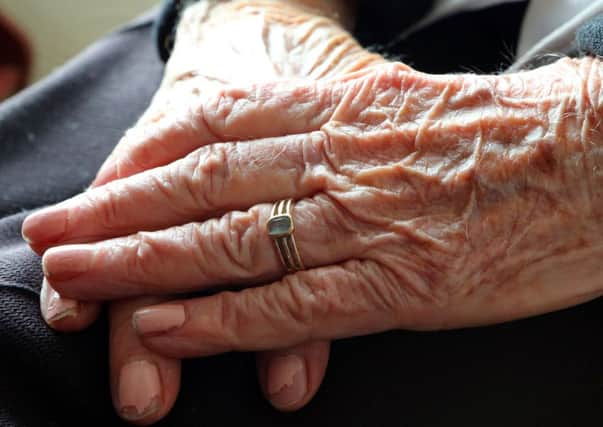Liz Adamson: Experience making a positive difference to lives


Our SOLUTION project was born out of recognition of the difficulties many patients have to overcome to be able to live independently.
While working with older people and those with arthritis, I saw first-hand how difficult it was for them to get eye drops successfully into their eyes. I could see that people with conditions such as glaucoma and dry eyes need eye drops daily but can find the small plastic bottles difficult to handle. Further investigation revealed this to be a major problem for lots of people which can impact on their quality of life.
Advertisement
Hide AdAdvertisement
Hide AdI set out to see if something could be done to improve this situation and whether a new bottle could be developed as an alternative to the current ones, which are so difficult to squeeze and to deliver an accurate dose.
Edinburgh Napier University is able to call on a wide range of expertise across a range of fields, including nursing, engineering, product design and informatics. With funding from the Edinburgh and Lothians Health Foundation and a multi-disciplinary team, we have been working on developing a new eye drop device. An advisory board consisting of field experts and people who use eye drops themselves are guiding and monitoring the project.
Reflecting on the wealth of experience on our doorstep, we realised we had the opportunity to make a wider, positive difference to the lives of people with conditions that affect their ability to complete what might be considered to be ordinary tasks. This may include taking medicines for treatment or to relieve symptoms.
Now, 10 months after the original idea was born, a team of academics is hard at work on SOLUTION, a project which aims to find practical solutions to everyday healthcare problems.
Funded by the university and external backers, I have been working with Professor Ian Hunt from our School of Engineering, Will Titley from the School of Arts and Creative Industries, graduate interns and research assistants on ideas to improve healthcare through medical device and technology development.
We have invited healthcare workers, patients and families to come forward and share their challenges, difficulties, insights, ideas and potential solutions in the hope that Edinburgh Napier can work with the NHS to develop them and make life better for everyone involved.
The project has been given the title SOLUTION, with the acrostic underlining our aims: Seeking ways to enhance healthcare, Optimise existing knowledge and experience, Leading the way in healthcare improvement, Understanding the challenges that healthcare practitioners work with, Taking health innovation forward, Identifying the things that can be changed, Ordinary people finding solutions, Not settling for less than best.
Central to the project are the people who use the service and those who deliver it so we are not only working with senior NHS personnel but want to respond to the suggestions and ideas generated by patients, families and staff who provide direct care.
Advertisement
Hide AdAdvertisement
Hide AdWe developed a leaflet that provides information on how to contact us by phone text or email, and the project also has a website; www.napier.ac.uk/solutionsproject
We are aware that we can’t solve every problem and have developed criteria to help us assess what is possible and what we can progress from the ideas shared with us. If it is possible to make even a small difference and enhance the patient, family or staff experience then we consider the work to be worthwhile.
At this stage two groups of staff have approached us with potential projects that focus on care within the community, helping patients to live safely and independently and avoiding admission to acute care.
In partnership with a clinical expert, development of an innovative surgical tool is also under way as part of the current portfolio of work. Another project currently at an early stage of development involves software to aid safe management of infusion devices within acute settings.
As the people who use the devices and those who provide care are central to the project, we want them to contribute to the design and development process throughout. We intend inviting patients and staff to share their views, opinions and suggestions from conception to completion of each of the devices and technologies we work on.
We hope that the solutions developed will be what patients and staff need and want and will enhance patients’ quality of life and the working life of staff who strive to provide person-centred safe care.
• Liz Adamson is Associate Professor at Edinburgh Napier University’s School of Nursing, Midwifery and Social Care